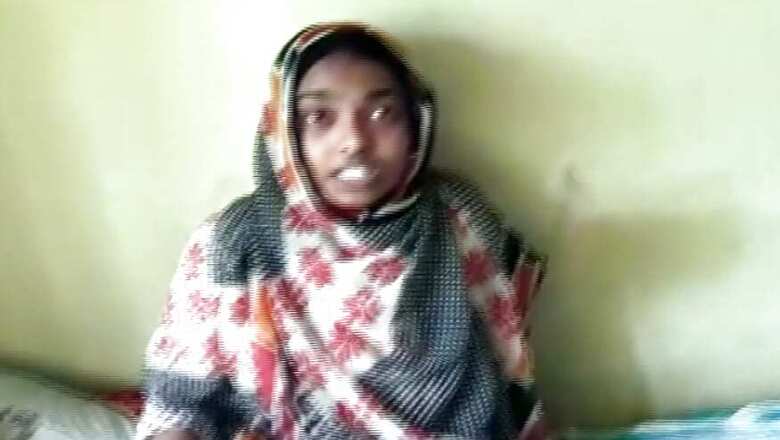
views
Kottayam: Her house in a village in Kottayam is guarded like a mini-fortress, there are policemen outside the boundary walls keeping a sharp lookout and two close circuit television cameras scanned both sides of the approach. Finding it was easy; “look for the house where there are a lot of cops,” a villager said.
At the gates we can figure out that the constables manning the CCTV monitors have already noticed us. A policeman stops us saying we can neither go inside nor take pictures. As the CNN-News18 camera crew members wait, I peep over the huge compound wall. I get a glimpse of Akhila — who now prefers to be known as Hadiya — walk into a room with a women constable following closely behind her. The house and its surroundings are secured closely, at least a dozen police personnel at the first count. There are even more CCTV cameras inside the premises, monitored round the clock.
That’s how it has been for Hadiya since May when the Kerala High Court annulled her marriage to a Muslim, Shafin Jahan, and asked her to go back to her parents. The 24-year-old homeopathy medical student had embraced Islam against the wishes of her family and got married to Jahan the day she was to appear before the HC in a case filed by her father, Ashokan. The Supreme Court is now hearing an appeal by Jahan, and later this month Hadiya will tell the open court who she wants to live with.
On the second day, Ashokan agrees to speak. “I have no problems in her spending the rest of her life as a Muslim. But I don’t want her to live with Shafin, he has terrorist links,” the ex-serviceman says, referring to that allegations that Jahan has connections with the fundamentalist organisation, Popular Front of India (PFI).
The interaction takes place at a neighbouring house, and as he continues to pour out his worries, Hadiya comes to her window and looks out, a dupatta thrown over her head like the reiteration of her faith.
For neighbours, Akhila was a shy young woman who kept mostly to herself — until they say saw a bold new side to her. As the Akhila-Hadiya case played out in public and under the glare of the national media, their lives too came to be affected. Police came to their houses asking them to give a call if anyone new, even if it is a friend or relative, arrives in the area. The narrow pathway around their house was closed to public. Over the months they have learnt to live with it.
“Initially, the police presence was much higher. There will always be a police van parked before the house. Now, the number of policemen on duty has come down,” says a neighbour who doesn’t want to be identified.
On November 27, Hadiya will tell the Supreme Court whether she wants to go back to Jahan. That could, hopefully provide closure on with whom — and as who — she wants to spend the rest of her life.

















Comments
0 comment